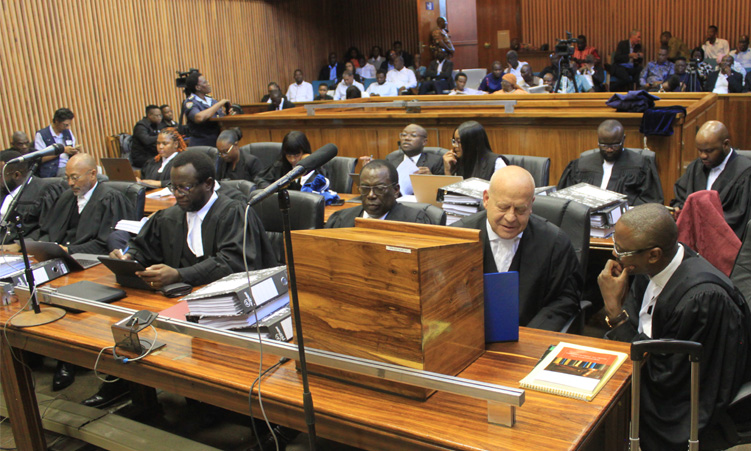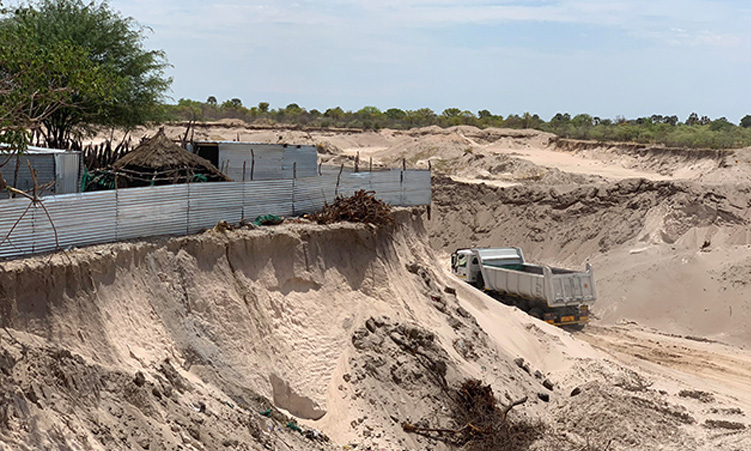HIGH food prices have been on everyone’s lips for a while. People are coming home with smaller amounts of groceries but larger bills.
Globally, the high price of food is driving millions of people into life-threatening poverty.
Even though petrol prices have come down, food prices have not dropped much, if at all. The International Trade Union Confederation (ITUC) says the number of people without enough to eat increased by 150 million last year, and the global economic crisis is likely to result in a further 200 million falling into absolute poverty.Global food prices have fallen somewhat since their historic high in mid-2008, but they remain higher than at the beginning of last year.Cereal prices are still 71 per cent higher than in 2005.So just why are food prices so high?In a report, the ITUC points to a combination of factors that are leading to the explosion of food prices globally.All of these factors also affect prices in Namibia in one way or the other. Michael Gaweseb of the Namibian Consumer Association (NCA), which has been lobbying for consumer issues since 2005, says in Namibia ‘it is believed that increases in food prices are caused elsewhere and the problem is imported’.One major issue is the current global practice of turning crops into biofuels, which are supposed to be better for the environment.The problem is that people are now literally competing with cars for food, as biofuel demand takes up more and more of the world’s crops and this drives prices up.While Gaweseb says concern for the environment is not a bad idea,he adds that ‘we have to think about our priority, which is to feed the poor at reasonable costs’.A second problem is speculation in the commodity market. Not content with deriving profits from trading shares, investors have turned to real food items in order to fill their pockets.Futures markets, for example, allow traders to buy large amounts of commodities such as maize and stockpile them until the price goes up.They then sell them for a handsome profit. The problem is that this drives up the price for consumers as well, often the poorest of the poor. A further market-related problem is collusion in the pricing of basic commodities.Tiger Brands, a staple food producer, was recently fined by the competition commission in South Africa for fixing the price of bread.In Namibia, Gaweseb says some staple food producers are also behaving like cartels.He says for example the ‘agronomic industry gets together to decide on the price of their produce’, which means there is little direct competition on prices. He says Namibia ‘does not have the mechanisms to detect and curb such practices’. But Koos Ferreira of Namib Mills says his organisation is mainly a price taker, as most wheat consumed in Namibia is imported. He says there are a lot of hidden costs in producing basic food items and that contrary to popular belief there are no ‘super profits being made by anyone in the chain’.But Gaweseb still sees an urgent need for the Competition Commission, whose creation was set out in law a few years ago, to take up its work. He says at the same time Namibia needs a comprehensive consumer protection law, such as the one recently introduced in South Africa. The recent VAT zero ratings on some basic foods are an example where such a law could have been effective, Gawaseb says. After the zero rating, ‘many retailers removed the tax, but simply increased the price of the affected products’ to compensate, says Gawaseb.The Act introduced in South Africa is comprehensive, regulating everything from marketing tactics to price displays and giving consumers a channel to voice complaints.Gaweseb says the act could easily be adopted in Namibia too, without much change. Currently, the Ministry of Trade and Industry is in the ‘very early stages’ of drafting an Act on the issue, according to Gaweseb. The lack of a consumer protection bill and the relative inexperience of local consumer associations was also found to be problematic by the Consumer Unity and Trust Society (CUTS), an international organisation monitoring consumer issues. In an official report, CUTS says Namibian consumer associations are not working continuously and with enough capacity to protect consumers here. The report states that the problem in Namibia ‘is not having a civil society or consumer organisation that is attuned to working on competition policy and law issues’.The NCA is still in its early stages but Gaweseb is hopeful he can soon take up his post permanently as the organisation gets more funding.The NCA has already taken part in such events as advising the parliamentary standing committee on high bank charges in 2006.
Stay informed with The Namibian – your source for credible journalism. Get in-depth reporting and opinions for
only N$85 a month. Invest in journalism, invest in democracy –
Subscribe Now!









